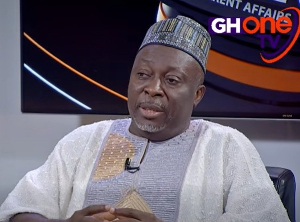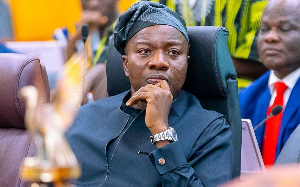DISABILITY AND INCLUSIVE DEVELOPMENT
No. D515/3 Akai Nettey St, Korle Wokon Accra – Ghana. Email: didpghana@gmail.com Tel: 00233 240977706, 00233 542897481
Cc: Information Services Department, Ministry of information
• National Council of Persons with Disabilities (NCPD)
• The Ministry of Gender and Social Protection
• To: the Ghana News Agency
• All Media Houses
3rd December 2015
GOVERNMENT MUST RESERVE 5 PERCENT OF PUBLIC SECTOR JOBS FOR PWDS
On the occasion of International Day of the Disabled which falls on the 3rd December every year, the Disability and Inclusive Development (DIDP) wish to draw the attention of public and private social service institutions about the need to include the needs of persons with disabilities (PWDs) in national development programs. Issues of concern to the PWDs include but not limited to accessibility to education, and employment. The DIDP is not also happy with the rate of stigmatization and prejudice against PWDs in the country. As in the case of all other persons with disabilities, ignorance, superstition and negative cultural beliefs have led to the stigmatization and discrimination.
With regards to education, the DIDP wish to emphasize that the inclusion of deaf and blind and deaf students in mainstream schools must be accompanied by a supportive environment including the provision of braille and sign language interpretation services or assistive technology devices that could enhance communication. This is because inclusive education as a simple placement of students with disability in a regular school without meaningful interaction is tantamount to their exclusion from the educational system. In such environments, blind and Deaf students and other categories of PWDs are physically present but may be mentally and socially absent. Provisions must therefore be made to ensure to make all levels of education accessible to PWDs.
In the area unemployment, even though it is a general economic problem, the situation is significantly worse among the deaf and persons with disability as a whole. Ghana Human Development Report for instance indicated that the unemployment rate for PWDs is 31 percent while that of non-disabled persons is 19.8 percent. While the National Disability Act (715) seeks to promote the employment of persons with disability (PWDs) it falls short of an affirmative action. It would be more appropriate to include a provision in the law that could guarantee a minim quota of about five (5) percent of all public sector employment opportunities for qualified persons with disabilities. With such a provision the government could take the lead and set a good example for the private sector to emulate. In quest to reduce unemployment among PWDs, it would also be imperative to support vocational training and sustainable livelihood projects. Since most of PWDs are in the informal sector, financial institutions should not shun away from supporting those who need micro-credit to set up their own business.
It is also equally difficult for PWDs to access healthcare in Ghana partly due to communication barrier. In many instances deaf persons are misdiagnosed and prescribed inappropriate medication leading to undue complications and preventable deaths. This is because there is no provision for sign language interpreters within the health care delivery system. In response to this problem adequate sign language interpreters could be trained and placed at the regional and major district hospitals across the country.
The DIDP wish to emphasize that good intensions alone are not enough. The existing policies and laws must be implemented to ensure inclusive society for all. Persons with disabilities have the same right as other members of society. Disability mainstreaming requires that disability aspects are included in all relevant policy formulation and implementation and not treated separately. Finally, the DIDP entreat the general public to change the negative perception about PWDs and desist from discrimination and stigmatization because disability is a social construction reinforced through barriers created by society.
SIGNED
Emmanuel Sackey
(Executive Director)
Opinions of Friday, 4 December 2015
Columnist: Sackey, Emmanuel














